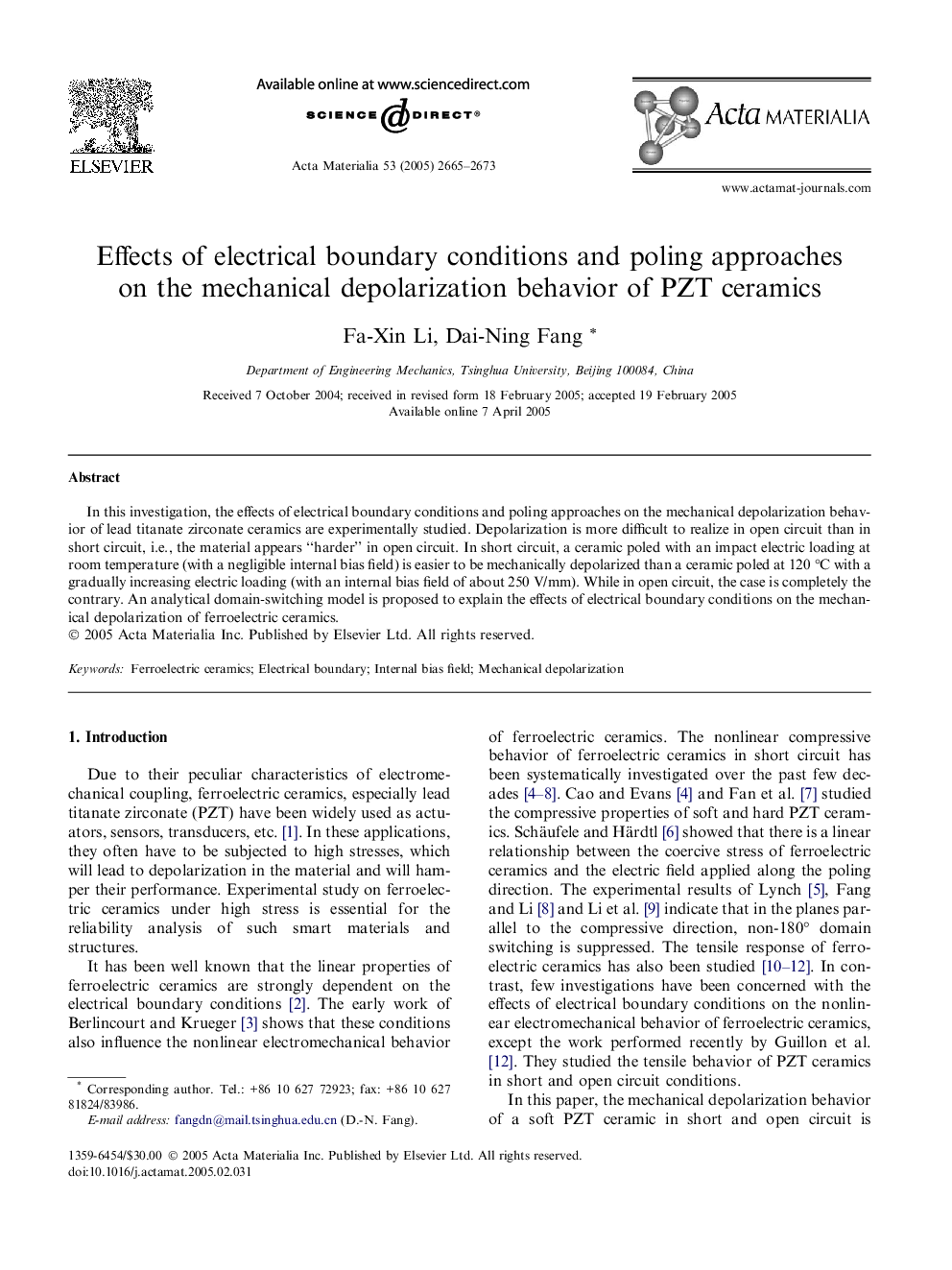| Article ID | Journal | Published Year | Pages | File Type |
|---|---|---|---|---|
| 1451362 | Acta Materialia | 2005 | 9 Pages |
In this investigation, the effects of electrical boundary conditions and poling approaches on the mechanical depolarization behavior of lead titanate zirconate ceramics are experimentally studied. Depolarization is more difficult to realize in open circuit than in short circuit, i.e., the material appears “harder” in open circuit. In short circuit, a ceramic poled with an impact electric loading at room temperature (with a negligible internal bias field) is easier to be mechanically depolarized than a ceramic poled at 120 °C with a gradually increasing electric loading (with an internal bias field of about 250 V/mm). While in open circuit, the case is completely the contrary. An analytical domain-switching model is proposed to explain the effects of electrical boundary conditions on the mechanical depolarization of ferroelectric ceramics.
